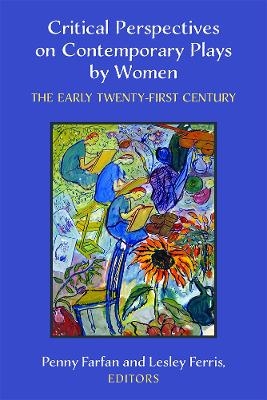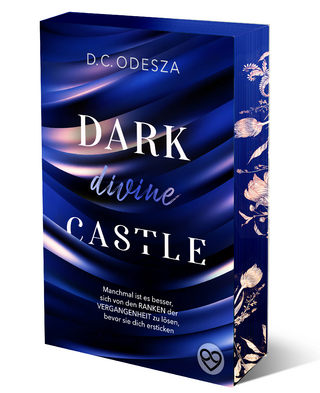
Critical Perspectives on Contemporary Plays by Women
The University of Michigan Press (Verlag)
978-0-472-07435-8 (ISBN)
This book foregrounds some of the ways in which women playwrights from across a range of contexts and working in a variety of forms and styles are illuminating the contemporary world while also contributing to its reshaping as they reflect, rethink, and reimagine it through their work for the stage. The book is framed by a substantial introduction that sets forth the critical vision and structure of the book as a whole, and an afterword that points toward emerging currents in and expansions of the contemporary field of playwriting by women on the cusp of the third decade of the twenty-first century. Within this frame, the twenty-eight chapters that form the main body of the book, each focusing on a single play of critical significance, together constitute a multi-faceted, inevitably partial, yet nonetheless integral picture of the work of women playwrights since 2000 as they engage with some of the most pressing issues of our time. Some of these issues include the continuing oppression of and violence against women, people of color, LGBTQ+ people, and ethnic minorities; the ongoing processes of decolonization; the consequences of neoliberal capitalism; the devastation and enduring trauma of war; global migration and the refugee crisis; the turn to right-wing populism; and the impact of climate change, including environmental disaster and species extinction.
The book is structured into seven sections: Replaying the Canon; Representing Histories; Staging Lives; Re-imagining Family; Navigating Communities; Articulating Intersections; and New World Order(s). These sections group clusters of plays according to the broad critical actions they perform or, in the case of the final section, the new world orders that they capture through their stagings of the seeming impasse of the politically and environmentally catastrophic global present moment. There are many other points of resonance among and across the plays, but this seven-part structure foregrounds the broader actions that drive the plays, both in the Aristotelian dramaturgical sense and in the larger sense of the critical interventions that the plays creatively enact. In this way, the seven-part structure establishes correspondences across the great diversity of dramatic material represented in the book while at the same time identifying key methods of critical approach and areas of focus that align the book’s contributors across this diversity. The structure of the book thus parallels what the playwrights themselves are doing, but also how the contributors are approaching their work. Plays featured in the book are from Canada, Australia, South Africa, the US, the UK, France, Argentina, New Zealand, Syria, Brazil, Italy, and Austria; the playwrights include Margaret Atwood, Leah Purcell, Yaël Farber, Paula Vogel, Adrienne Kennedy, Suzan-Lori Parks, debbie tucker green, Lisa Loomer, Hélène Cixous, Anna Deavere Smith, Lola Arias, Lisa Kron and Jeanine Tesori, Marie Clements, Quiara Alegría Hudes, Alia Bano, Holly Hughes, Whiti Hereaka, Julia Cho, Liwaa Yazji, Grace Passô, Dominique Morisseau, Emma Dante, Frances Ya-Chu Cowhig, Lynn Nottage, Elfriede Jelinek, Caryl Churchill, Colleen Murphy, and Lucy Kirkwood.
Encompassing several generations of playwrights and scholars, ranging from the most senior to mid-career to emerging voices, the book will be essential reading for established researchers, a valuable learning resource for students at all levels, and a useful and accessible guide for theatre practitioners and interested theatre-goers.
Penny Farfan is Professor of Drama at the University of Calgary. Lesley Ferris is Arts and Humanities Distinguished Professor of Theatre Emeritus at The Ohio State University.
Contents
Acknowledgments
Introduction: Critical Visions
Penny Farfan
I. Replaying the Canon
1. Feminist Adaptations / Adaptations of Feminism: Margaret Atwood’s The Penelopiad
Penny Farfan
2. Indigenizing the Colonial Narrative: Leah Purcell’s The Drover’s Wife
Denise Varney
3. Does Revenge Fall Softly? Yaël Farber’s Molora
Catherine Cole
4. Indecent Collaborations and / in Queer Time(s)
Katie N. Johnson and Sara L. Warner
II. Representing Histories
5. The Bloodstained Distance: Adrienne Kennedy’s He Brought Her Heart Back in a Box
Alisa Solomon
6. Unmaking a Devil’s Bargain: Suzan-Lori Parks’s Father Comes Home from the Wars and the Idea of America
Soyica Diggs Colbert and Robert J. Patterson
7. “A Change Is Gonna Come?” Protest and Racial Progress in debbie tucker green’s ear for eye
Lynette Goddard
8. Maternal Agency and Reproductive Justice in Lisa Loomer’s Roe
Sharon L. Green
III. Staging Lives
9. The Mythic Migrant, the Witnessing Self: Hélène Cixous and Le Dernier Caravansérail: Odyssées
Emine Fişek
10. Exceptional Embodiment in Anna Deavere Smith’s Let Me Down Easy
Ryan Claycomb
11. Acting and Reenacting the Malvinas/Falklands War in Lola Arias’s Minefield/Campo minado
Paola S. Hernández
12. Fun Home: Lesbian Feminism Meets Broadway Musical Theatre
Stacy Wolf
IV. Re-imagining Family
13. A ‘rock inside the flesh’: Motherwork in Marie Clements’s The Unnatural and Accidental Women
Karen Bamford and Sheila Rabillard
14. Quiara Hudes’s Water by the Spoonful and the Dramaturgy of Free Jazz
Natalie Alvarez and Jimena Ortuzar
15. British Muslim Feminism and the Marriage Trap: Alia Bano’s Shades
Meenakshi Ponnuswami
16. Lesbian Interspecies Performance: Holly Hughes’s The Dog and Pony Show (bring your own pony)
Kim Marra
V. Navigating Communities
17. Bread of Life: Whiti Hereaka’s Rēwena
Diana Looser
18. Transcultural Memory and Food in Julia Cho’s Aubergine
Esther Kim Lee
19. Truth and Absurdity on the London Stage: Liwaa Yazji’s Goats and its Audiences Margaret Litvin with Liwaa Yazji
20. “I Will Tend Your Garden”: The Terms of Proximity in Grace Passô’s Por Elise
Honey Crawford
VI. Articulating Intersections
21. Dominique Morisseau’s Blood at the Root: Intersectionality and the Jena Six
Juliet Guzzetta
22. Economic Disenfranchisement and Gender Inequality in Emma Dante’s mPalermu
Francesca Spedalieri
23. The Magic of Change: Frances Ya-Chu Cowhig’s The World of Extreme Happiness
Xing Fan
24. “But nostalgia’s a disease”: Viewing Lynn Nottage’s Sweat in the Age of Trump
Courtney Elkin Mohler
VII. New World Order(s)
25. Miss Piggy the Seer in the Land of Trump’s Blind: Elfriede Jelinek’s On the Royal Road: The Burgher King
Sue-Ellen Case
26. Has She “Escaped Alone” to Tell Us? Caryl Churchill: ‘Messenger’ for the Twenty-First Century
Rosemary Malague
27. Climate Change and the Capitalocene in Colleen Murphy’s The Breathing Hole
Wendy Arons
28. The Ghosts of Greenham Common in Lucy Kirkwood’s The Children
Lesley Ferris
Afterwords: Emerging Currents: Fighting on Two Fronts
Lesley Ferris
Notes on Contributors
| Erscheinungsdatum | 01.09.2021 |
|---|---|
| Verlagsort | Ann Arbor |
| Sprache | englisch |
| Maße | 152 x 229 mm |
| Themenwelt | Literatur ► Lyrik / Dramatik ► Dramatik / Theater |
| Geisteswissenschaften ► Sprach- / Literaturwissenschaft ► Anglistik / Amerikanistik | |
| Geisteswissenschaften ► Sprach- / Literaturwissenschaft ► Literaturwissenschaft | |
| Sozialwissenschaften ► Soziologie ► Gender Studies | |
| ISBN-10 | 0-472-07435-0 / 0472074350 |
| ISBN-13 | 978-0-472-07435-8 / 9780472074358 |
| Zustand | Neuware |
| Informationen gemäß Produktsicherheitsverordnung (GPSR) | |
| Haben Sie eine Frage zum Produkt? |
aus dem Bereich


